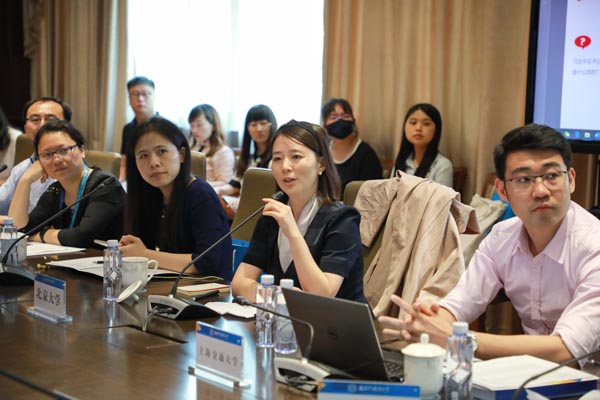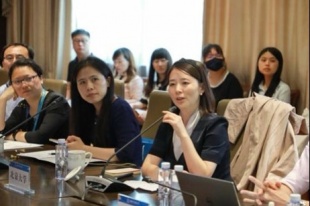Chinese universities turn multilingual to go global


Many Chinese institutions of higher education have been attempting to become more globalized by making their websites available in different languages so as to better communicate with potential foreign students and promote their academic achievements.
In late June, 20 universities which gathered at Shanghai International Studies University for a meeting regarding overseas communication said that their websites are available in foreign languages.
For example, the SISU website now is available in 28 languages. The website's multilanguage contents include more than 7,000 articles about topics such as Chinese culture, Chinese society and the changes, as well as information about Shanghai.
Some articles have even been cited by local and foreign media, foreign embassies and consulates in China and official websites of foreign government agencies, according to the university.
During the meet, the University of Shanghai for Science and Technology, said that 43,000 visits to its new English website which was launched in January were made from overseas, accounting for nearly two-thirds of the total visits.
Jiang Feng, Party chief of SISU, says that overseas communication is now a key focus for schools to interact with the world and improve their influence.
"We've been committed to letting the outside world learn more about traditional Chinese culture, China's reform and opening-up and stories happening in Sino-foreign exchange through the multilanguage website," he says.
Tsinghua University in Beijing was among the first universities on the Chinese mainland to open accounts on international social media platforms in 2015.
Around 2,000 updates, including pictures, videos and live broadcasts, are made each year on such platforms.
The topics are usually related to the institution's major events or student and alumni activities.
"Updates regarding our master's programs taught in English and those about the school's performance in the latest world university rankings usually enjoy the highest popularity," says Lin Yuan, deputy director of the global communication office at Tsinghua University.
Xiang Debao, a professor from SISU's School of Journalism and Communication, says that a recent research conducted by his team showed that a university's influence in cyberspace has positive correlation with its visibility and discourse power in the real world.
"We have also suggested that Chinese universities set up columns for their well-known researchers and professors on the website and social media to help build their influence," he adds.
ZHOU WENTING in Shanghai




































